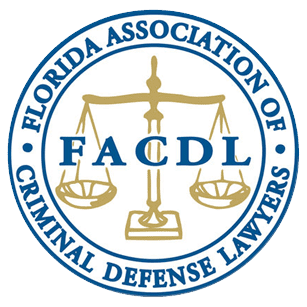There is no more death penalty in Florida—at least not until lawmakers significantly overhaul Florida’s capital punishment statute. In February of this year, the United States Supreme Court ruled that Florida’s death penalty law is unconstitutional for giving too much power to judges and too little to juries. The ruling was a victory for criminal justice reform advocates, but it is likely that Florida’s conservative government will pass a new death penalty law that is just as harsh as the old one.
The Florida Supreme Court ordered that the United States Supreme Court ruling should apply retroactively to all death row inmates in Florida. This means that the 390 inmates awaiting execution on Florida’s death row may now be resentenced to life in prison.
Until lawmakers fix Florida’s death penalty statute, prosecutions in death penalty cases have ground to a halt. Indeed, county judges have instructed local prosecutors to not seek the capital punishment in first-degree murder cases because Florida no longer has a constitutionally valid death penalty law.
Why Florida’s Death Penalty Law Was Invalid
The United States Supreme Court ruled that Florida’s death penalty law violates defendants’ Sixth Amendment right of due process. Under the Sixth Amendment, a defendant has a right to a fair trial, but in Florida the death penalty law creates a process that is inherently unfair.
In Florida, a defendant may face the death penalty when a jury agrees that at least one aggravating factor of the case is so egregious as to justify the death sentence. For example, if the prosecutor shows evidence that the defendant premeditated the murder, or intended to cause the victim to suffer before dying, the jury would probably find aggravating factors in the case.
What makes the law in Florida so unfair is that the jury doesn’t have to unanimously agree to the same aggravating factors. And in their recommendation to the judge, they do not specify what
aggravating factors they decided on—only that they found at least one aggravating factor.
This means that the judge may order the death sentence based on an aggravating factor that is different than the one envisioned by the jury. But according to Supreme Court Justice Sonia Sotomayor: “the Sixth Amendment requires a jury, not a judge, to find each fact necessary to impose a sentence of death.” Therefore, Florida’s death penalty statute is unconstitutional.
Florida May Still Have the Harshest Death Penalty Law in the US
The Supreme Court did not strike down Florida’s law on the basis of the unanimous juries issue—the court’s ruling was based only on the fact-finding issue. This means that the new death penalty law might only change the jury procedures enough to cure the fact-finding flaw pointed out by the Supreme Court, and leave the issue of unanimous juries untouched.
Florida lawmakers are in profound disagreement about how to rewrite the law. The Senate prefers a requirement for unanimous jury decisions for death sentences and the House of Representatives proposes a bill that would require a jury supermajority vote of at least 9 to 3 and a unanimous decision on aggravating factors.
Republican Senator Thad Altman supports unanimous jury decisions, because convicting a criminal in Florida requires a unanimous jury. According to him, it follows that a unanimous jury decision should be required to sentence someone to death after a conviction. The Senator, however, was pessimistic about the chances of a full reform of the death penalty in Florida, stating:
“The Legislature here is very pro-death penalty [and doesn’t] want to be perceived as being soft on crime in any way.”
According to an investigation by the Villages Daily Sun, 75% of prisoners on death row in Florida ended up there after a jury failed to unanimously agree on aggravating factors. This means that if the law changed to require a unanimous (or supermajority) jury decision on the death penalty, there would be much less prisoners facing execution in Florida.
There is no other state where it is easier for a prosecutor to obtain a death sentence for a criminal defendant. In Florida, successfully navigating the criminal justice system requires the highest level of legal experience and advocacy. If you’re facing criminal charges, call Valcarcel law today at (941) 363-7900 for a free and confidential consultation of your case.
View All Blogs

